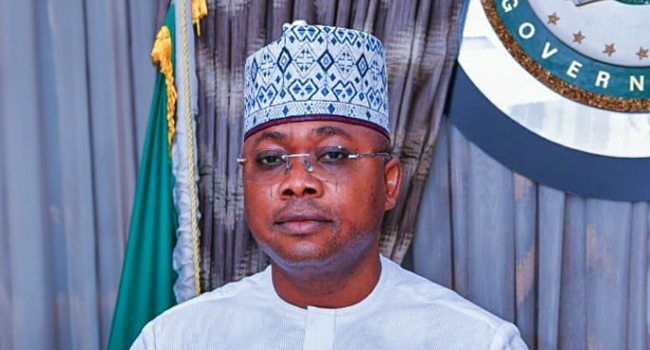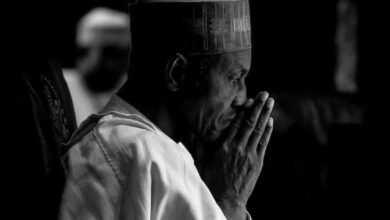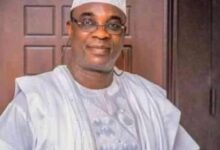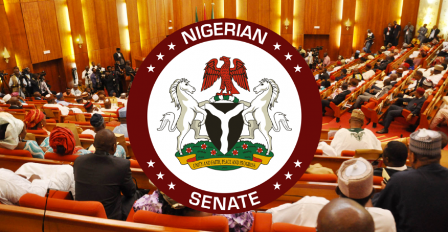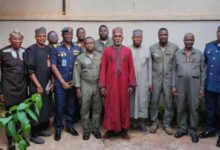Stop blaming Buhari for killings – MURIC
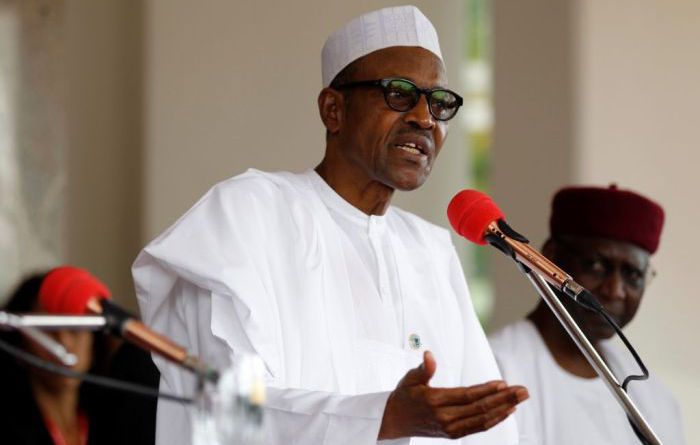
*Hold NASS responsible for frustrating Buhari’s security plans – Group
“Ours is not an isolated case but we are behaving as if Nigeria is an island. Farmer-herder clashes are common everywhere, particularly in West Africa. Take Ghana as an example. Earlier this year, cattle rustlers invaded farmlands in Ashanti, Volta, Brong Ahafo and the Eastern regions leading to killings and the destruction of farms. But Ghanaians did not crucify their president because of the clashes. To solve this problem, Ghana established its first cattle ranch last week at Afram Plains in the eastern region. It plans to establish more in the Volta and Ashanti regions.”

The Muslim Rights Concern (MURIC) has advised Nigerians to stop blaming President Muhammadu Buhari for killings around the country.
In a statement released on Monday and signed by leader of the group, Prof. Ishaq Akintola, the association blamed politicians, tribal bigots and a section of the media for the spread of wrong information about killings around the country.
According to MURIC, “It is unfair to blame Buhari for our inability to stop killings. Security is a collective responsibility particularly on the different arms of government: the executive, the judiciary and the legislature. The press as the Fourth Estate of the Realm also has a vital role to play there. So are the citizens.
“In the case of Nigeria today, instead of cooperating with the executive, our legislature is an open enemy even in a sensitive matter like the security of lives and properties. For example, as killings occur on a daily basis, Buhari made a move in April 2018 to procure more weapons to fight insecurity but a hostile Senate turned down the request.
“National Assembly (NASS) made so much fuss about Buhari’s request for $1 billion from the Consolidated Revenue Fund, threatening to impeach him for approving its release without its consent. The same self-serving legislature delayed the budget for seven months just to get back at the executive and of course no money can be released before the Appropriation Act is signed into law.
“Yet the first on the list of twelve resolutions of the NASS issued on 5th June, 2018 was that ‘The Security Agencies must be given marching orders to curtail the sustained killings of Nigerians across the country and protect life and properties of Nigerians’. This is grossly unfair. NASS also declined to accede to Buhari’s request to approve the sum of $496 million for the procurement of Super Tucano aircfraft from the United States. Yet Nigerians failed in their duty to question the right of their lawmakers to endanger their lives.
“Apart from the problem of herders and farmers, the recent revelation by Hon. Ahmed Maje that certain politicians sponsored killers and assassins who were trained in Israel has completely absolved President Muhammadu Buhari in the killings. Weapons for the clandestine operations were smuggled into the country through our porous boarders. It was only a few containers which were seized by customs that we heard of. Many others were safely delivered.”
Citing the example of the recent communal clash which claimed more than 200 lives in the South East, the Islamic human rights organization argued that nobody in his right senses would blame the executive for such criminal inclination among the populace, even as it urged Nigerians to adopt a holistic approach to killings occurring in the country.
MURIC also insisted that the killings were not new as more than 1,000 Muslims were massacred, roasted and eaten up in cannibal style by the Berom Christian militia of Plateau state in 2001.
The group was dismayed that the massacre of those Muslim faithful by the Berom Christian of Plateau, which should have been properly covered by the Nigerian media, was not covered.
“Ours is not an isolated case but we are behaving as if Nigeria is an island. Farmer-herder clashes are common everywhere, particularly in West Africa. Take Ghana as an example. Earlier this year, cattle rustlers invaded farmlands in Ashanti, Volta, Brong Ahafo and the Eastern regions leading to killings and the destruction of farms. But Ghanaians did not crucify their president because of the clashes. To solve this problem, Ghana established its first cattle ranch last week at Afram Plains in the eastern region. It plans to establish more in the Volta and Ashanti regions.
“It is time to face realities. We must borrow a leaf from Ghana. That country is as multi-religious and multi-cultural as Nigeria. Herders and farmers clashes can be avoided if we objectively consider the recommendation for the establishment of ranches. Ghanaian President Akufo-Addo had in March this year expressed his administration’s intention to establish cattle ranches to curb the menace of herders. He has succeeded in doing that because Ghanaians did not look at his tribe or religion. They considered what will benefit them.
“Our problems in this country are political shenaniganism, acrobatic religiousity and ethnic demagoguery. Instead of treating the tangentials, we always go for the peripheral. We amplify sentimental aspects and trivialize the real issues. Instead of considering the antecedent of a leader, we are more interested in his tribe and religion. We treat symptoms but we leave the real ailment. How then can we move forward as a people? Don’t ask who did this to Nigeria because we are the architects of our own woes”.
MURIC lamented the failure of the elites and the academic community to liberate themselves from ethnic jingoism. Quoting Dr. Chuba Okadigbo, Akintola said, “The late Dr. Chuba Okadigbo said it all, ‘If you are emotionally attached to your tribe, religion or political leaning to the point that truth and justice become secondary considerations, your education is useless. Your exposure is useless. If you cannot reason beyond petty considerations, you are a liability to mankind’.
“In conclusion, Nigerian lawmakers should take the lion share of the blame, followed by the citizens and the media. They should all accept their culpability in this peculiar mess instead of blaming the executive since the latter has done what is humanly possible within the law”.



